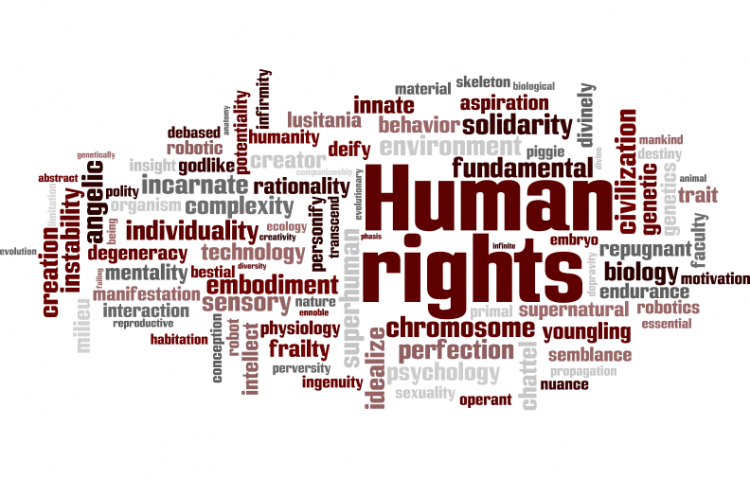
- Target:
- President George Bush
- Region:
- GLOBAL
- Website:
- www.epic-usa.org
In Iraq, infant and child mortality has doubled in the past 12 years - 1 in 5 children in south and central Iraq are chronically malnourished - Iraqi hospitals in areas heavily bombed by US and UK planes during the Gulf War are full of children dying from a cancer - epidemic and many babies are born with congenital malformations. The Iraqi national literacy rate has dropped 22% over the past 12 years There continues to be regular bombing of Iraq by the US and UK - wounding and killing Iraqi citizens.
When asked whether the death of 500,000 Iraqi children was worth the price of implementing sanctions, the US Ambassador to the UN, Madeleine Albright, said "it was worth the price". We campaign as a women-only group in order to create a space in which women, from all nationalities, feel comfortable expressing themselves and acting together. The economic sanctions which affect ordinary Iraqis must be separated from diplomatic and military sanctions against the regime War is not the way to fight terrorism on a global scale, nor is it the way to improve the plight of the Iraqi people. Opposing sanctions is not the same as supporting the Iraqi regime - Opposing sanctions is supporting the Iraqi people 'If people could hear and see what is being done in their names in Iraq, they would be outraged. But they don't, so it continues.' -- John Simpson, BBC World Affairs Editor 12 years ago Iraq was a rapidly modernising state. It had good health care and education, modern tele-communications, water treatment and electricity systems. But it also had a dictatorial, oppressive regime which the Iraqi people neither elected nor were able to remove from power. Economic, military and political sanctions were imposed when Iraq invaded Kuwait in 1990 - 'the most comprehensive in history' according to a US State Department official. 12 years later they are still in place. Sanctions, far from weakening the government, have helped it to keep control over an exhausted and desperate population. Saddam Hussein is still in power and is still carrying out massive human rights violations. Iraq is now one of the least developed, most damaged countries in the world. At least half a million children under 5 have died because of economic sanctions and countless others continue to suffer. Goods have been scarce, prices high and it is ordinary people who are suffering most. Disease, child mortality and malnutrition are rocketing because food, essential medicines and clean water are often unavailable or unaffordable. The UN has recently accepted a new so-called 'smart sanctions' proposal sponsored by the US and the UK. 'Smart sanctions' may allow more goods into the country, but will do nothing to increase the purchasing power of ordinary people or provide the means to reconstruct the country's shattered infrastructure. In emphasising the two most import causes of the humanitarian crisis - poverty and poor public infrastructure - Tun Myat, UN Humanitarian Coordinator in Iraq has said: 'No matter how much you try and modify (the existing UN humanitarian programme) it is not designed for - and it will never be - a substitute for normal economic activity... I consider water and sanitation to be the biggest killer of children in this country." Without resources or spare parts, roads, power plants and sewage works, many of which were targeted in the Gulf War, remain unrepaired and have a devastating impact on the health and well-being of Iraqi people. With the decline in normal economic activity, there has been a huge increase in poverty, high unemployment and very low salaries. Many people are so poor that they have to sell part of the food ration - the only income they receive. Sanctions have also torn at the social fabric of Iraqi life, creating an increase in violent crime, divorce and prostitution. Women are risking backstreet abortions or abandoning their babies because they know they won't be able to feed them and there has been an increase in street children. Iraq has also suffered an intellectual embargo. For 12 years no educational or research materials have been allowed in and about four million Iraqis have fled, creating a terrifying brain drain. Participation in education at all levels has declined and the illiteracy rate has risen sharply. The 1991 Gulf War has left a fatal legacy of depleted uranium carried in the warheads of missiles released during the blanket bombing in the south of Iraq. It will cost a fortune to clear up and even then it will be too late for the many Iraqi children suffering from leukaemia and related cancers.
Many children are born with malformations so severe that they do not live. Several high-ranking UK officials working in the country have resigned in protest at this misguided policy. 'We are in the process of destroying an entire society. It is as simple and terrifying as that. It is illegal and immoral.' Dennis Halliday, former UN Humanitarian Co-ordinator in Iraq. And the bombing raids continue-- The US, supported by
Britain, is now threatening to extend the 'war on terrorism' to Iraq. Inevitably, any military action will result in large civilian casualties and further damage and disruption to the fragile infrastructure and food distribution systems is likely to result in a humanitarian catastrophe. It's time to stop punishing the ordinary Iraqi people. -- Act Together. Women Against Sanctions in Iraq
By signing this petition we hereby acknowledge that sanctions and war against the innocent people of Iraq should not be tolerated.
You can further help this campaign by sponsoring it
The Say "no" to sanctions and War Against Iraq petition to President George Bush was written by Anai Rhoads and is in the category Human Rights at GoPetition.